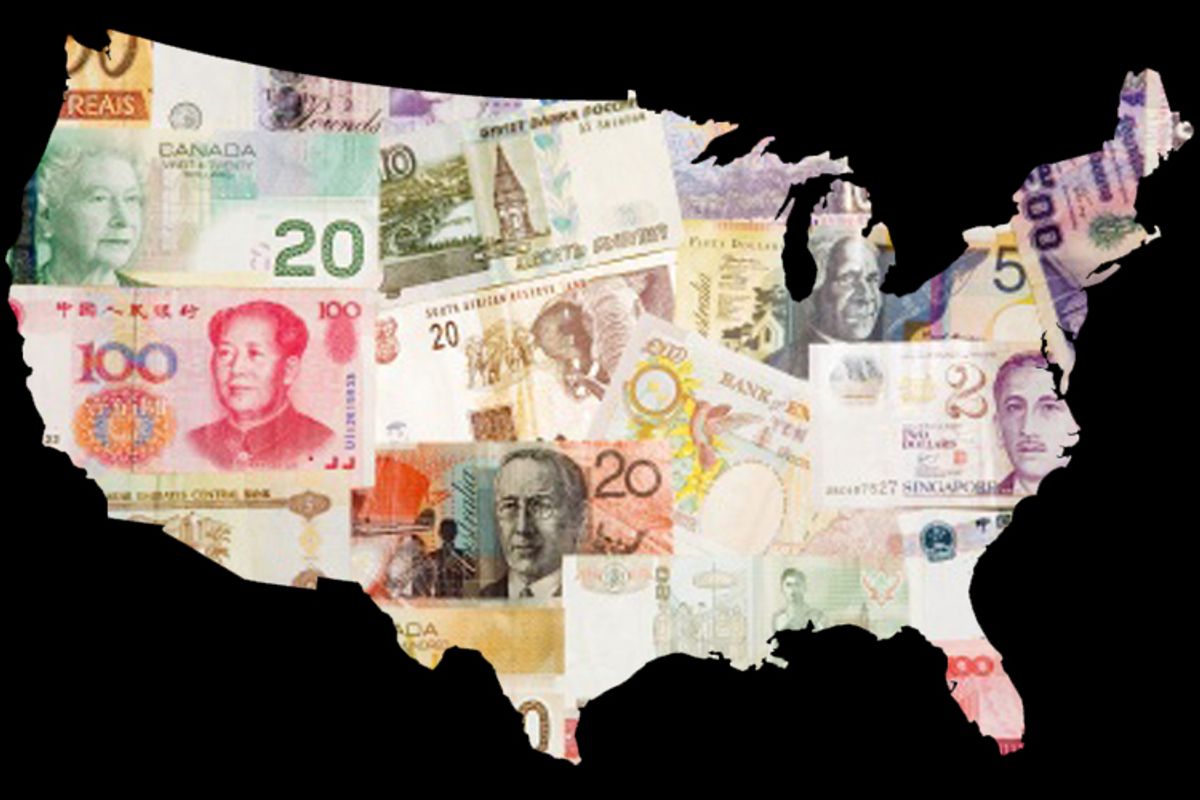Among the most troubling consequences of the Supreme Court decision in the Citizens United case is the opening of American elections at every level to uninhibited influence by foreign interests. With a single stroke, the Republican majority on the court razed the law's safeguards against such interference from abroad as well as its flimsy shelter from corporate corruption. Not much has been heard on this alarming topic so far from the "tea party patriots" or any of the other usual right-wing suspects, however. Their flag-flapping ire tends to be directed against Democrats and liberals only.
Actually, the Republican attorneys and the justices themselves reviewed this issue, at least glancingly, during the course of argument in the landmark case. Justices Ruth Bader Ginsberg and John Paul Stevens, who happen to have been appointed by Democrats, asked whether foreign corporate interests would be able to funnel money into American elections through their U.S. subsidiaries if the court struck down law and precedent to allow unlimited corporate political spending. The reply came from Theodore Olson, who first gained notoriety as the lawyer for the secretive anti-Clinton Arkansas Project and has lately distinguished himself as a libertarian advocate for gay marriage. "I would not rule that out," he admitted.
Unsurprisingly, the majority opinion written by Justice Anthony Kennedy simply failed to address the problem. Why draw attention to the bad news when you're overturning a century of precedent?Besides, it isn't bad new for Republicans, who have every reason to believe they will enjoy generous support from foreign corporations, just as they expect to bank millions of fresh crisp dollars from American corporate interests. Although they will sometimes scream about alleged or imagined foreign donations to Democrats, as some of them did in 2008, their own party’s record in soliciting support from dubious sources abroad is real, and worse.
Proof lies in the files of the campaign finance scandals of the Clinton era, when Asian and Asian-American businessmen were caught laundering money into both parties. Plausible suspicions that some of those funds had come from the Chinese government led, in turn, to wild accusations of treason against the Democrats in power. But when a Senate committee led by Fred Thompson, R-Tenn., investigated, little evidence emerged proving that either Democrats or Republicans had knowingly accepted money from a foreign source – except in one glaring case. Haley Barbour, then chairman of the Republican National Committee, hatched a complicated loan scheme that laundered $2 million from a Hong Kong businessman through a GOP "think tank" and into his party’s congressional campaigns. (That business executive, Ambrous Tung Young, visited Beijing with Barbour, who introduced him to both House Speaker Newt Gingrich and Senate Majority Leader Bob Dole in 1995.)
Barbour clearly knew that the money came from foreign sources and appeared to have lied to the committee about the matter. When the Senate hearings began, John Glenn, then a Democratic senator from Ohio, offered a pithy summary of Barbour’s behavior: "As far as I know, [this] is the only [case] where the head of a national political party knowingly and successfully solicited foreign money, infused it into the election process, and intentionally tried to cover it up." The Young scheme used a Florida subsidiary of his company -- which boasted Gerald Ford as a director! -- to conceal its foreign origin. That is certain to happen on a much larger scale in years to come.
A little money laundering among friends is not an obstacle to success among Republicans, however, and Barbour went on to bigger and better things. Today he is governor of Mississippi, where his penchant for influence peddling has served him well – and he is now a widely touted prospect for the Republican ticket in 2012.



Shares